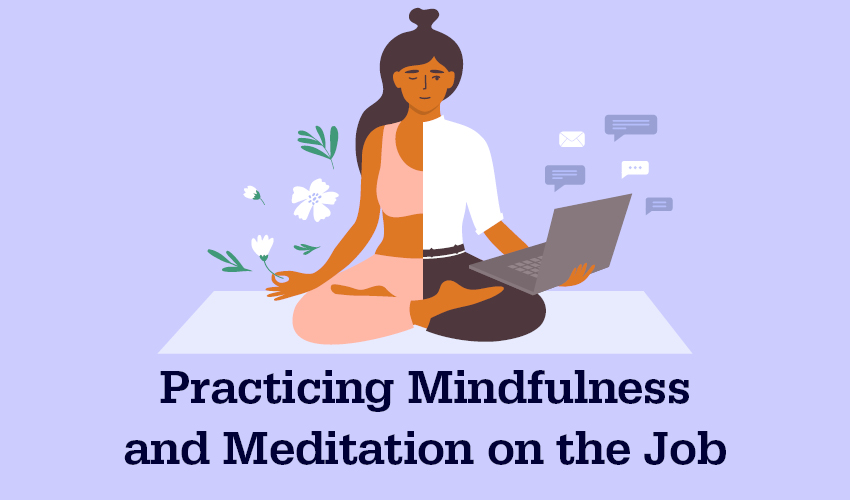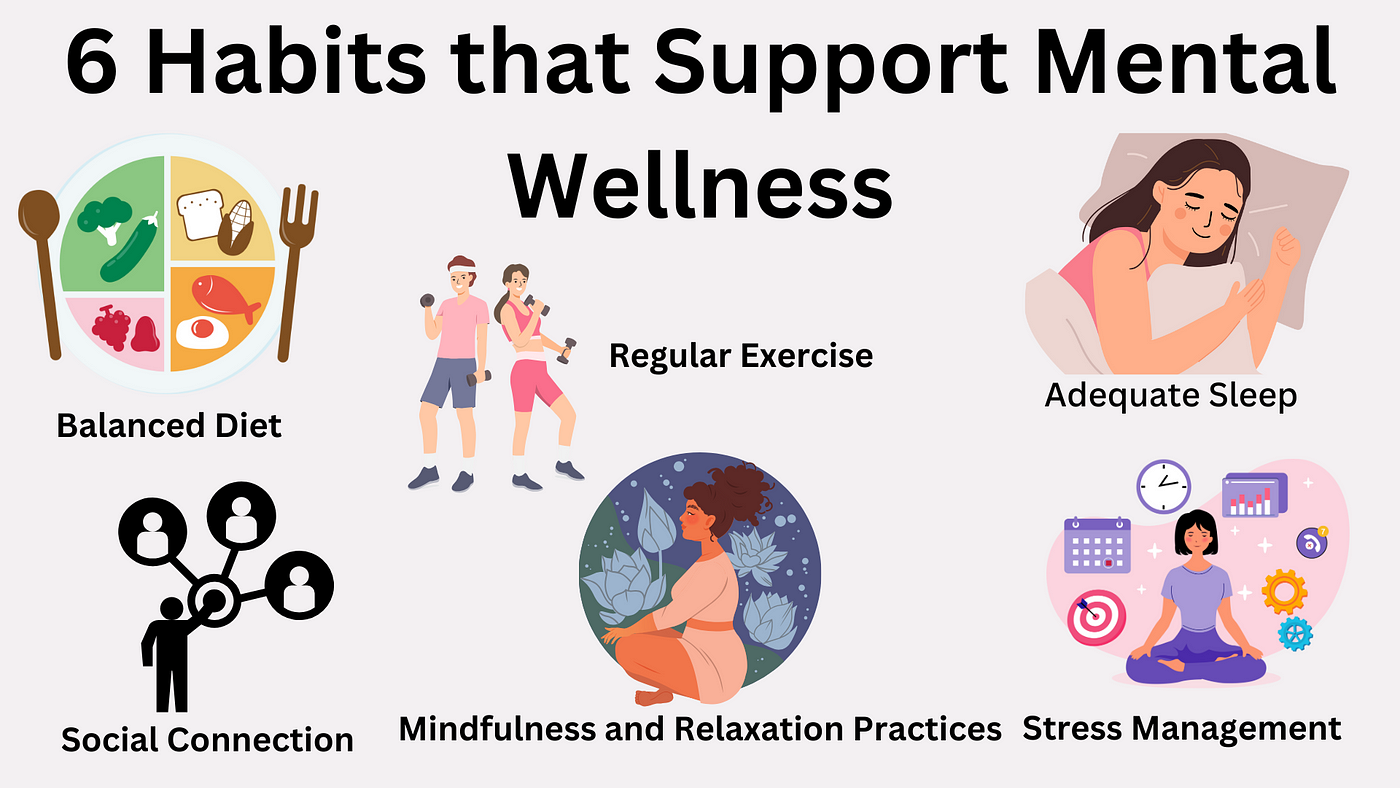Table of Contents
- The Importance of Mental Health
- Strategies for Managing Stress
- Building Emotional Resilience
- The Role of Mindfulness in Mental Health
- Seeking Professional Help and Support Networks
- Healthy Lifestyle Habits that Support Mental Health
1. The Importance of Mental Health
Mental health is just as important as physical health and has a significant impact on every aspect of our lives. It encompasses emotional, psychological, and social well-being, influencing how we think, feel, and behave. Mental health is crucial for coping with daily stresses, building relationships, and making choices that contribute to overall happiness and fulfillment. Poor mental health can affect not only emotional well-being but also physical health, potentially leading to conditions such as heart disease, high blood pressure, and chronic illness.
Maintaining good mental health is essential for resilience, which is the ability to adapt to challenges and recover from adversity. It is not only about avoiding mental illnesses such as depression or anxiety but also about promoting positive mental well-being through regular self-care, meaningful relationships, and personal growth. Just as we exercise to strengthen our bodies, we must also nurture our mental health to foster emotional balance and resilience.
2. Strategies for Managing Stress
Stress is a normal part of life, but when it becomes chronic, it can negatively impact both physical and mental health. Effective stress management is key to maintaining a healthy mind and body. One of the most effective ways to manage stress is through relaxation techniques such as deep breathing, meditation, and progressive muscle relaxation. These methods help reduce the physical symptoms of stress, including elevated heart rate and muscle tension, while also calming the mind.
In addition to relaxation techniques, time management skills are essential in reducing stress. Prioritizing tasks, setting boundaries, and learning to say no can alleviate feelings of being overwhelmed. It’s also important to engage in regular physical activity, as exercise triggers the release of endorphins, which are natural mood boosters that counteract the effects of stress. Finding hobbies or activities that bring joy, whether it's reading, gardening, or crafting, can also provide an outlet for stress and promote mental relaxation.
Lastly, cultivating a positive mindset can be a powerful tool in managing stress. Practicing gratitude, reframing negative thoughts, and focusing on solutions rather than problems helps shift the focus away from stressors. By incorporating these strategies into daily life, individuals can significantly reduce stress and improve their mental health.
:max_bytes(150000):strip_icc()/3145195-article-tips-to-reduce-stress-5a8c75818e1b6e0036533c47-922c3155e9c846eaa7447c75030b2c13.png)
3. Building Emotional Resilience
Emotional resilience is the ability to adapt and bounce back from life’s challenges. It’s an essential component of mental health, as it enables individuals to handle setbacks, manage difficult emotions, and maintain a positive outlook even during tough times. Building emotional resilience involves developing coping strategies that allow you to remain calm and effective in the face of adversity.
One key aspect of resilience is emotional regulation, which is the ability to manage and respond to intense emotions in a healthy way. Techniques such as mindfulness, breathing exercises, and journaling can help process emotions and prevent them from becoming overwhelming. Additionally, building strong, supportive relationships plays a critical role in resilience. Having a network of people to lean on during difficult times provides a sense of security and encouragement.
Another important aspect of resilience is self-compassion. Being kind to oneself during times of difficulty, rather than engaging in self-criticism, fosters emotional healing and growth. Resilient individuals also tend to have a sense of purpose and a positive mindset, which can help them stay motivated and focused on their goals, even in the face of setbacks.

4. The Role of Mindfulness in Mental Health
Mindfulness is the practice of paying attention to the present moment without judgment. It has become an increasingly popular tool in improving mental health and well-being due to its ability to reduce stress, enhance emotional regulation, and improve overall mental clarity. Mindfulness techniques include meditation, mindful breathing, and body scan exercises, all of which help individuals tune into their thoughts, emotions, and physical sensations in a non-reactive manner.
By incorporating mindfulness into daily routines, individuals can break the cycle of rumination—repeatedly thinking about past mistakes or worrying about the future—which often exacerbates stress and anxiety. Mindfulness encourages a sense of awareness and acceptance, which fosters emotional balance and improves mental clarity. Regular mindfulness practice has been shown to reduce symptoms of depression, anxiety, and PTSD, while also enhancing emotional resilience.
For those new to mindfulness, starting with short sessions of 5–10 minutes can make it more manageable. Over time, as mindfulness becomes a regular habit, individuals will experience improved emotional regulation, greater peace of mind, and a deeper connection to the present moment.

5. Seeking Professional Help and Support Networks
While self-care strategies like stress management, emotional resilience, and mindfulness are powerful tools, seeking professional help when necessary is equally important. Mental health professionals, such as therapists, counselors, and psychiatrists, can provide guidance, therapy, and support for those facing mental health challenges. Therapy, including Cognitive Behavioral Therapy (CBT), dialectical behavior therapy (DBT), and other therapeutic approaches, can help individuals manage and overcome mental health conditions such as depression, anxiety, and trauma.
It's essential to recognize that seeking help is a sign of strength, not weakness. There should be no stigma attached to receiving professional care for mental health issues. Early intervention is key to preventing conditions from worsening, and a therapist can offer coping strategies, provide a safe space for emotional expression, and help individuals develop skills to manage difficult emotions.
In addition to professional help, support networks, such as family, friends, or online communities, provide a sense of connection and belonging. Having a strong social support system offers emotional security and can help reduce feelings of isolation. Whether through group therapy or connecting with others who have had similar experiences, these networks provide valuable encouragement and shared understanding.
6. Healthy Lifestyle Habits that Support Mental Health
A holistic approach to mental health includes maintaining a healthy lifestyle, which plays a crucial role in supporting emotional and psychological well-being. Physical health and mental health are closely interconnected, and habits that promote physical well-being can also enhance mental clarity and emotional balance.
Regular physical activity, for instance, not only strengthens the body but also releases endorphins—chemicals that boost mood and reduce feelings of anxiety and depression. A balanced diet, rich in nutrients such as omega-3 fatty acids, antioxidants, and vitamins, can also support brain health and improve emotional stability. Getting adequate sleep is equally important, as poor sleep quality can lead to irritability, stress, and cognitive impairment.
Additionally, engaging in social activities, volunteering, and pursuing hobbies or creative endeavors can provide a sense of purpose and fulfillment, boosting mental health. Creating a balanced routine that includes time for work, relaxation, and personal growth helps maintain mental well-being and fosters resilience in the face of life’s challenges.



You must be logged in to post a comment.